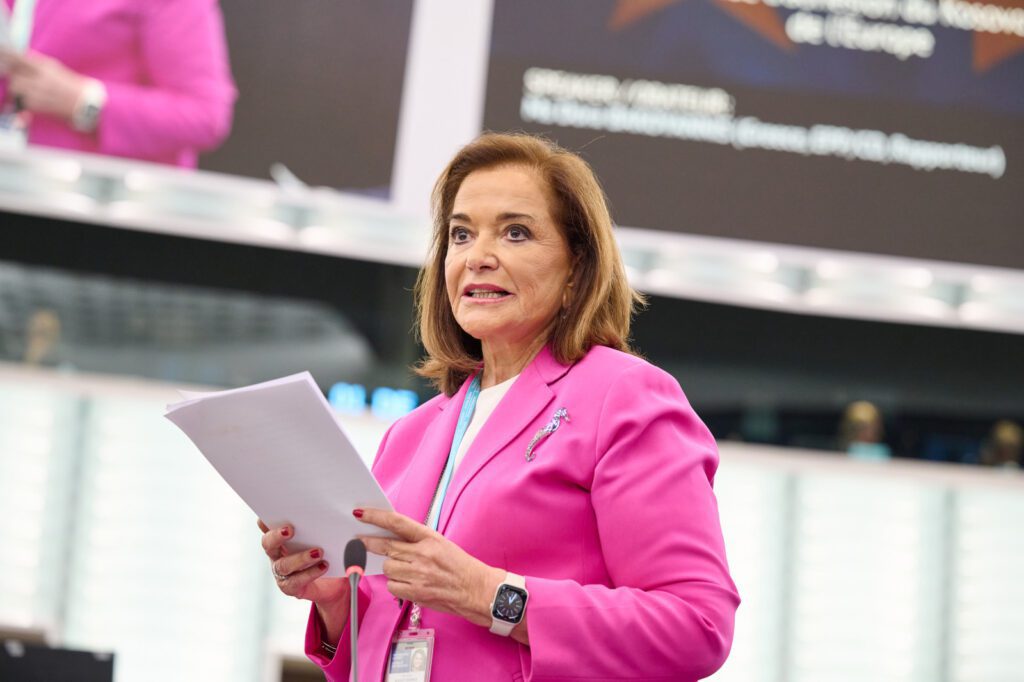This op-ed was published in cooperation with Serbian weekly Radar
It doesn’t take a seasoned expert to understand that Serbia belongs in Europe. The country is located at the core of the Continent, surrounded by four EU member states, and for decades, the EU has been Serbia’s main trade partner. Serbia’s future prosperity and democratic resilience are intrinsically linked to its relationship with the EU.
Yet, in recent years, the prospect of Serbia’s European Integration has been slipping away. The European Council’s enlargement policy update in December did not include Serbia; the European Parliament voted in February to suspend EU funding to the country, amid allegations of electoral fraud; and the European Commission has expressed strong disappointment over the stagnation of normalization talks with Pristina.
At the same time, for all of us who dream of a prosperous European Serbia, the increasingly tighter ties with Russia and China, the latest incidents of illiberalism, and repeated instances of anti-EU rhetoric in the political discourse cause major concern.
When the Parliamentary Assembly (PACE) of the Council of Europe (CoE) appointed me as Rapporteur to the request of the Committee of Ministers for the Assembly’s Opinion to Kosovo’s application, everyone was aware of my special ties with Serbia and the Serbian people.
Not only because I am representing a Member State that does not recognize Kosovo*’s independence, but also due to my work for Serbia’s European Integration. I first visited Belgrade in April 1993, accompanying my father, Konstantinos Mitsotakis, who was then the Prime Minister of Greece. Over the next 30 years, I had the opportunity to support Serbia in every role I assumed, not least as the Foreign Minister of Greece, from 2006 to 2009, and as the Chairperson-in-Office of the OSCE, in 2009.
The CoE is an international organization – distinct from the EU – that is dedicated solely to the promotion of democracy, the rule of law, and human rights in Europe.
Thus, unlike other international organizations, the accession process has historically been simple (46 out of 49 European countries are already Members), since membership is required before citizens have access to the democratic “tools” of the CoE.
My consultative, non-binding Report, was solely dedicated to human rights, and the need of bringing 2 more million Europeans under the democratic umbrella of the CoE. The latter is particularly important for the Serbian community in the region, which, for decades, has been deprived of the right to prosecute the authorities of Pristina for human rights violations, before an internationally recognized Court.
To reach a positive Opinion, it took 300 days, missions to Pristina, North Mitrovica and Brussels, a team of specialized lawyers, and dozens of meetings with governments, ambassadors, Serbian mayors, representatives of the Serbian Orthodox Church, NGOs, and international organizations.
It also required the authorities in Pristina to restore, after 25 years, the property of the most important Serbian Monastery in the region, to retract a bill for the express expropriation of Serbian properties, and to sign a long list of human rights agreements that, above all, put the Serbian minority under international protection.
No candidate member has ever been asked to undertake so many reforms before even being brought up for discussion on its accession to the Organization. This is probably why 83% of the Assembly voted in favor of the Report.
On the contrary, it was clearly mentioned that no stance on statehood would be taken by the PACE. In fact, during my speech in the Plenary, I underlined that “should have I been obliged by the Committee of Ministers to express my opinion on statehood, I would have never taken the Report, and I would align myself to the position of my country”, negating any consideration of Kosovo’s accession to the Organization.
Nevertheless, the latter was never required. The recognition or non-recognition of statehood is, and shall remain, the prerogative of States.
Despite of all the aforementioned, I was personally attacked by Serbia’s leadership. I was described as a shameless traitor who undermines our countries’ bilateral relations. Nothing could be further from reality. The public acknowledgement of my efforts from Father Savva, the Abbot of the Visoki Dečani Monastery, serves as a modest testament to this. Furthermore, it ought to be mentioned that the country’s leadership hasn’t always been so inward-looking.
In 2018, at the European Forum Alpbach in Austria, President Vučić publicly admitted negotiating “border corrections” between Serbia and Kosovo, with former Kosovo*’s President Hashim Thaçi.
Despite the fact that border negotiations presuppose the existence of two States (if not, then with whom are you negotiating?), to which I oppose, I considered this to be an act of bravery from the side of President Vučić, not an act of treason. Pragmatism is a scarce yet critical resource in politics, and the leaders who ever achieved in promoting their countries’ interests are the ones who did not hesitate to go against the basic instincts of national imaginary.
On the quest for a prosperous future for Serbia, there is no viable alternative to the EU and the embrace of liberal democratic institutions. Under the current projections, by 2050, Serbia is set to lose almost a quarter of its population, as the young and the skilled emigrate in search of labor. Should my Serbian friends want to reverse that tragedy, getting back into stride towards future-proof, pro-liberal politics is the only way forward. I trust them to do so!
PS: As someone who was in Belgrade during the bombardments, I feel disappointed and wronged by the personal attacks of extreme voices.
* All reference to Kosovo, whether to the territory, institutions or population shall be understood in full compliance with United Nations Security Council Resolution 1244 and without prejudice to the status of Kosovo.
Source link : https://europeanwesternbalkans.com/2024/05/01/bakoyannis-everyone-was-aware-of-my-special-ties-with-the-serbian-people/
Author :
Publish date : 2024-05-01 03:00:00
Copyright for syndicated content belongs to the linked Source.
